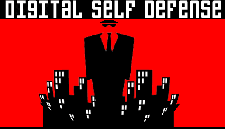
|
 |
|||
|
Black Hat USA Training 2006 |
|
Advanced Incident Response: |
||||||||
|
Mandiant |
||||||||
|
What to bring:
General knowledge of computer and operating system fundamentals is required. Students should have some exposure to software development. Experience in assembly and C, while not required, would be beneficial. Suggested reading “Real Digital Forensics” by Keith Jones & Curtis Rose (Addison-Wesley) |
Overview: Unfortunately, most malicious software analysis courses require extensive specialized knowledge, cover advanced topics and require expensive software. This introductory course fills this much-needed gap for those interested in entering the field of malicious software analysis. While this is considered an introduction, the course is fast paced and covers an extensive range of technical topics. The training provides a basic foundation of knowledge required to perform malicious software analysis with hands-on introductions to assembly, C, compilers, debuggers, executable file formats, and disassemblers. Once the foundation is established, the students are introduced to methods, tools and techniques for performing static and dynamic software analysis. Students will perform hands-on static and dynamic analysis of intrusion binaries “captured in the wild”. To facilitate the analysis, students will receive a copy of the free version of IDA disassembler. Students desiring to purchase IDA Pro will be provided coupons upon course completion entitling them to a 10% discount. Topics to be Covered Include:
Pre-requisites Who Should Attend This introductory course is targeted to those individuals interested in learning the fundamentals of malicious software analysis. For those already possessing these fundamental skills, we recommend more advanced training at the Black Hat conference such as
Outside of the conference, Datarescue, the publishers of IDA also offer training in the U.S. Information on their "Interactive DisAssembler Professional Training", taught by Ilfak Guilfanov, is available at www.ccso.com or www.datarescue.com. Prerequisites Experience in assembly and C, while not required, would be beneficial. Suggested reading “Real Digital Forensics” by Keith Jones & Curtis Rose (Addison-Wesley) |
|||||||
|
Trainer:
|
Kris Kendall Mr. Kendall, a key leader of MANDIANT technical teams, has over eight years of experience in computer forensics and incident response. He provides expertise in computer intrusion investigations, computer forensics, secure software development, and research & development of advanced network security tools and techniques. He is a former Special Agent in the United States Air Force Office of Special Investigations, and has developed several innovative tools that advanced the state-of-the-art in the rapidly evolving field of reverse engineering and binary analysis. Mr. Kendall earned both a Bachelor of Science and a Master of Engineering degree from the Massachusetts Institute of Technology. Curtis W. Rose Curtis is a founding member of Mandiant, formerly known as Red Cliff Consulting, and is an industry-recognized expert in computer security with over eighteen years experience in technical and information security, investigations, and computer forensics. Mr. Rose is an accomplished author, and his works include "Digital Forensics: Computer Security and Incident Response", Addison-Wesley, and contributing author or technical editor for several security books including, "Anti-Hacker Toolkit", McGraw-Hill, copyright 2002; "Network Security: The Complete Reference", McGraw-Hill, copyright 2003; and "Incident Response: Investigating Computer Crime", 2nd Edition, McGraw-Hill, copyright 2003. |
|||||||
|
Course Length: 2 days All course materials, lunch and two coffee breaks will be provided. A Certificate of Completion will be offered. You must provide your own laptop.
|
||||||||
|
(c) 1996-2007 Black Hat
|
